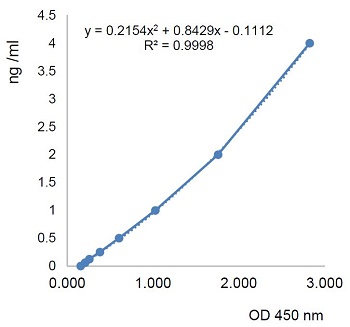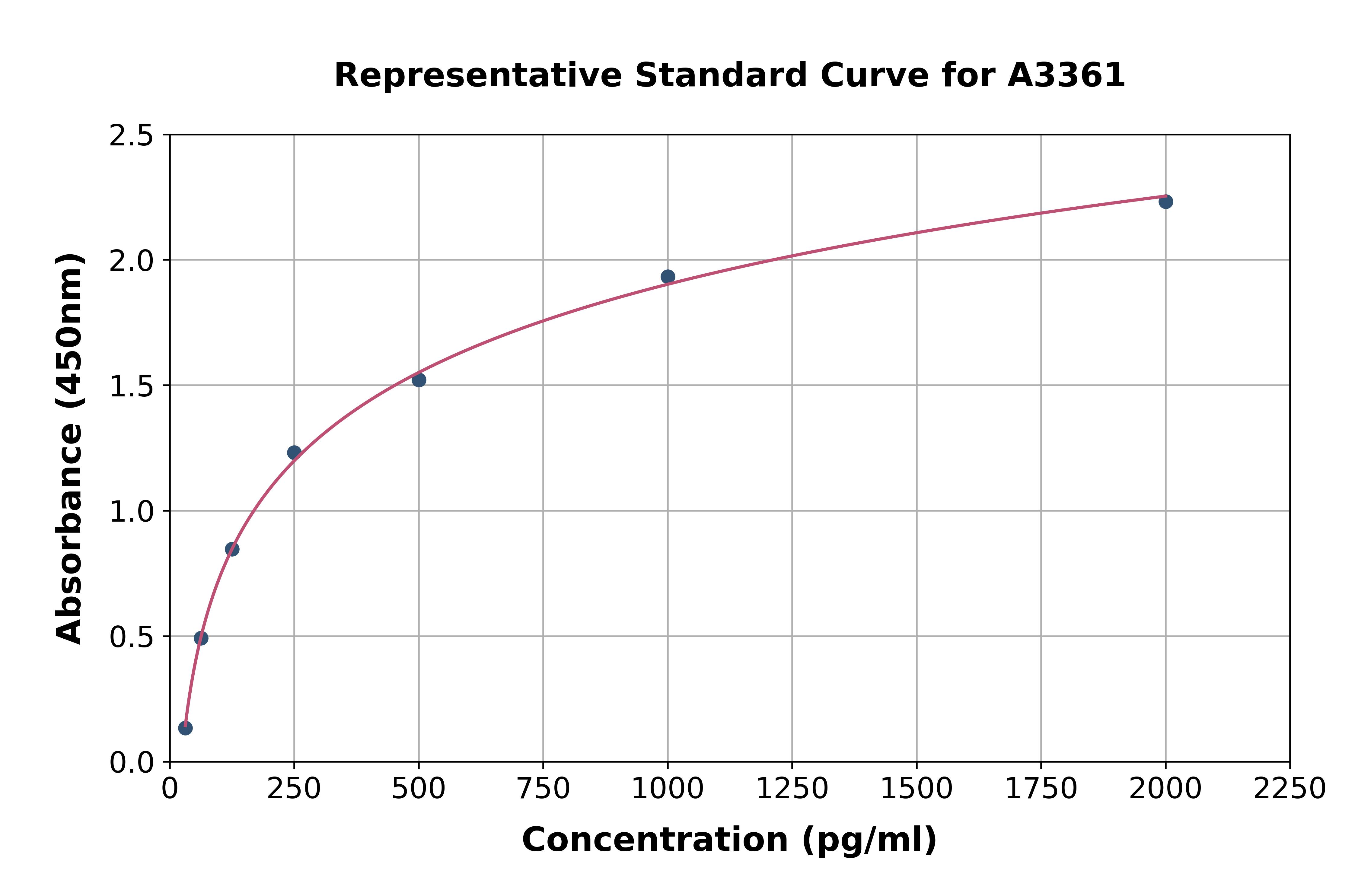
Standard Curve
Adiponectin (rat) ELISA Kit
AG-45B-0026
ReactivityHuman, Mouse, Rat
Product group Assays
Overview
- SupplierAdipoGen Life Sciences
- Product NameAdiponectin (rat) ELISA Kit
- Delivery Days Customer10
- ApplicationsELISA
- Assay Detection Range0.0625 to 4ng/ml
- Assay Sensitivity50pg/ml
- CertificationResearch Use Only
- Protein IDQ8K3R4
- Protein Name30 kDa adipocyte complement-related protein
- Scientific DescriptionAdiponectin [ACRP30; AdipoQ] is a promising biomarker of insulin resistance and type 2 diabetes mellitus (T2DM) but also as a potential target for management of the metabolic syndrome. It is a very robust marker that is not prone to degradation or acute inflammatory challenges, is present in relatively high concentrations in the peripheral circulation, and can be collected by a variety of methods. The benefits of using adiponectin assays in clinical settings include, (a) prediction of risk of diabetes and metabolic status and (b) providing a tool to monitor metabolic improvements. Adiponectin exerts anti-atherogenic and anti-inflammatory properties and may be important as a biomarker for obesity-related cardiovascular disease (CVD). New findings showed urinary adiponectin excretion as an independent new biomarker of microvascular and macrovascular damage in T2DM and suggested it as a very promising tool for early cardiovascular disease risk assessment. Adiponectin serum level was also described as a good biomarker of colorectal adenoma, this being related to the positive correlation between obesity and increased risk of cancer at various sites (colorectal, breast, prostate and endometrium). - ELISA Assay. Detects rat adiponectin. Does cross-react with mouse adiponectin or human adiponectin. Assay Type: Sandwich. Detection Type: Colorimetric. Sample Type: Cell Culture Supernatant, Plasma, Serum. Range: 0.0625 to 4ng/ml. Sensitivity: 50pg/ml. Adiponectin [ACRP30; AdipoQ] is a promising biomarker of insulin resistance and type 2 diabetes mellitus (T2DM) but also as a potential target for management of the metabolic syndrome. It is a very robust marker that is not prone to degradation or acute inflammatory challenges, is present in relatively high concentrations in the peripheral circulation, and can be collected by a variety of methods. The benefits of using adiponectin assays in clinical settings include, (a) prediction of risk of diabetes and metabolic status and (b) providing a tool to monitor metabolic improvements. Adiponectin exerts anti-atherogenic and anti-inflammatory properties and may be important as a biomarker for obesity-related cardiovascular disease (CVD). New findings showed urinary adiponectin excretion as an independent new biomarker of microvascular and macrovascular damage in T2DM and suggested it as a very promising tool for early cardiovascular disease risk assessment. Adiponectin serum level was also described as a good biomarker of colorectal adenoma, this being related to the positive correlation between obesity and increased risk of cancer at various sites (colorectal, breast, prostate and endometrium).
- ReactivityHuman, Mouse, Rat
- Storage Instruction2°C to 8°C
- UNSPSC41116100
- SpeciesRat







